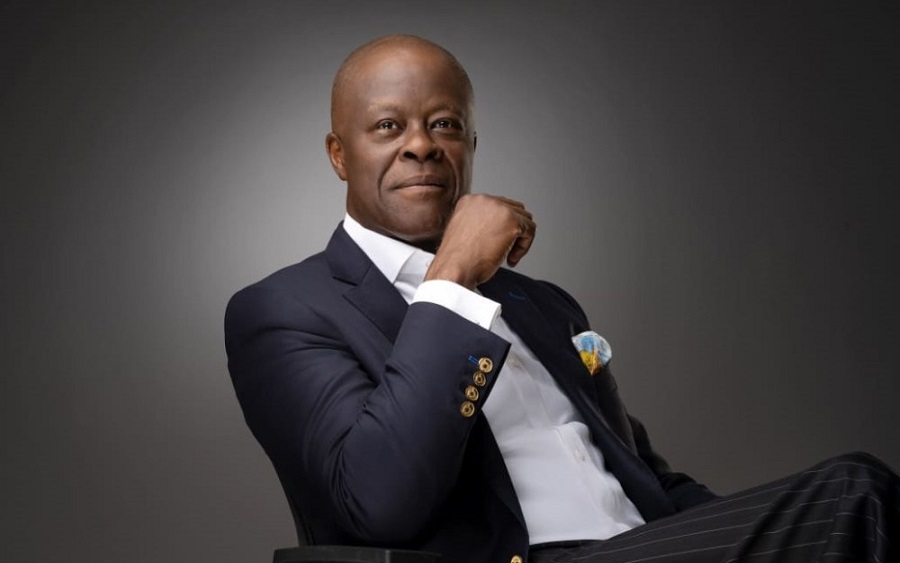Understanding The New Ministers Of Nigeria: A Shift In Governance
The landscape of Nigerian politics is ever-evolving, and the recent appointment of new ministers has sparked discussions across the nation. As Nigeria navigates its challenges and opportunities, these new leaders bring fresh perspectives and policies aimed at driving the country forward. Their roles are pivotal in shaping the socio-economic fabric of the nation, and understanding their backgrounds, visions, and strategies is crucial for citizens and stakeholders alike. With a diverse array of experience and expertise, the new ministers of Nigeria are poised to make significant contributions to governance and development.
The appointments have ignited curiosity and hope among the populace, as many are eager to see how these individuals will address pressing issues such as unemployment, infrastructure deficits, and healthcare disparities. Each minister is expected to bring their unique skills and insights to their respective portfolios, promising a new chapter in Nigeria’s governance. As we delve into the profiles of these new ministers, it becomes essential to assess their potential impact on Nigeria’s future and the strategies they might employ to fulfill their mandates.
In this article, we will explore the biographies of the new ministers of Nigeria, their roles, and the challenges they face in their respective sectors. By examining their backgrounds and proposed initiatives, we can gain a clearer picture of how these leaders intend to navigate the complex socio-political landscape of Nigeria. Join us as we embark on a journey to understand the new ministers of Nigeria and what they mean for the country’s trajectory.
Who Are the New Ministers of Nigeria?
The new ministers of Nigeria comprise individuals from various backgrounds, including politics, academia, business, and civil service. Their diverse experiences aim to bring innovative solutions to Nigeria’s multifaceted challenges. Below is a table summarizing the personal details and biodata of some of the newly appointed ministers:
| Name | Portfolio | Previous Experience | Contact Information |
|---|---|---|---|
| Abubakar Malami | Minister of Justice | Attorney General of the Federation | malami@justice.gov.ng |
| Zainab Ahmed | Minister of Finance | Former Minister of State for Budget and National Planning | zahmed@finance.gov.ng |
| Chris Ngige | Minister of Labour and Employment | Former Governor of Anambra State | cngige@labour.gov.ng |
| Adamu Adamu | Minister of Education | Former Education Journalist | aadamu@education.gov.ng |
What Are the Key Responsibilities of the New Ministers?
The new ministers of Nigeria are tasked with a range of responsibilities that are critical to the nation’s development. Their portfolios encompass vital sectors such as finance, education, health, and labor, which play a significant role in the overall well-being of the citizens. Some of their key responsibilities include:
- Formulating and implementing policies that align with national development goals.
- Ensuring effective governance and accountability within their ministries.
- Engaging with stakeholders to address sector-specific challenges.
- Promoting economic growth and social development initiatives.
How Will the New Ministers Tackle Nigeria's Challenges?
Each minister faces unique challenges in their respective sectors. The new ministers of Nigeria must navigate complex issues, including rising unemployment rates, inadequate infrastructure, and inefficiencies in public service delivery. Strategies they might employ include:
- Collaborating with the private sector to create jobs and stimulate economic growth.
- Implementing reforms to improve public service efficiency and transparency.
- Leveraging technology to enhance service delivery and governance.
- Engaging communities in policy formulation and implementation to ensure inclusivity.
What Vision Do the New Ministers Have for Nigeria?
The vision of the new ministers of Nigeria is crucial in determining the country’s trajectory in the coming years. They are expected to articulate clear goals and strategies that reflect the aspirations of the Nigerian people. Some components of their vision may include:
- Enhancing national security and public safety.
- Improving educational outcomes and access to quality education.
- Strengthening healthcare systems to ensure universal health coverage.
- Fostering economic diversification to reduce dependency on oil revenues.
What Are the Expectations from the New Ministers of Nigeria?
The expectations from the new ministers are high, as citizens look for tangible improvements in their daily lives. Stakeholders anticipate that these leaders will not only address existing challenges but also innovate solutions that will empower citizens and promote sustainable development. Some of the key expectations include:
- Timely execution of projects and initiatives that deliver results.
- Enhanced transparency and accountability in government operations.
- Meaningful engagement with the public and civil society.
- Demonstrated commitment to ethical governance and anti-corruption efforts.
How Can Citizens Engage with the New Ministers?
Citizen engagement is vital for the success of the new ministers of Nigeria. The public can play an active role in governance by:
- Participating in community forums and town hall meetings.
- Providing feedback on policies and initiatives through surveys and public consultations.
- Engaging with ministries via social media platforms for direct communication.
- Holding elected officials accountable through advocacy and civic action.
Conclusion: What Lies Ahead for the New Ministers of Nigeria?
As Nigeria embraces a new era of governance with the appointment of new ministers, the path forward is filled with both challenges and opportunities. By understanding their roles, responsibilities, and visions, citizens can better appreciate the significance of these appointments in shaping the country's future. The new ministers of Nigeria stand at a critical juncture, and their actions in the coming months will determine the trajectory of the nation as it seeks to achieve sustainable development and improved living standards for all.
Discovering The Magic Of The Little Ice Rapper
Understanding Orogbo In English: The Bitter Truth Behind The Name
Exploring The Delicacies: Uramaki Vs Hosomaki


